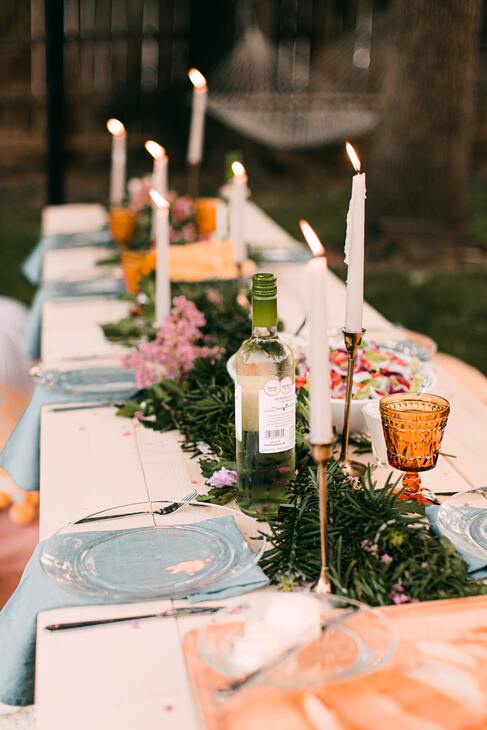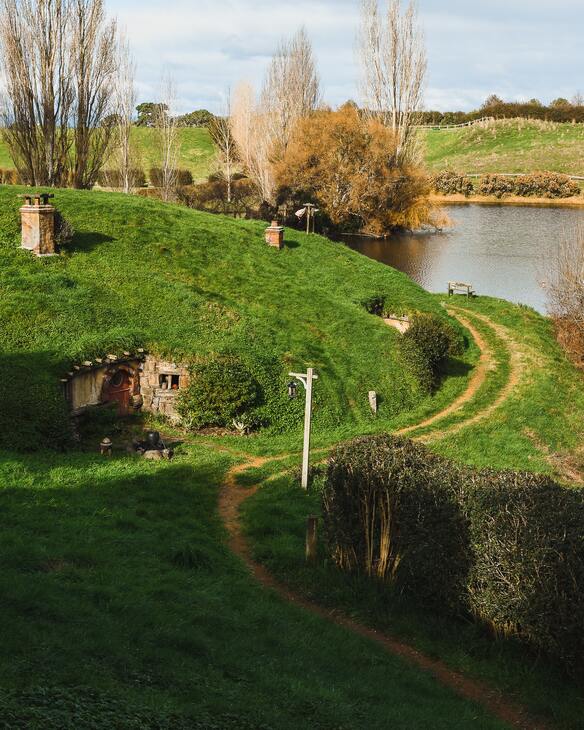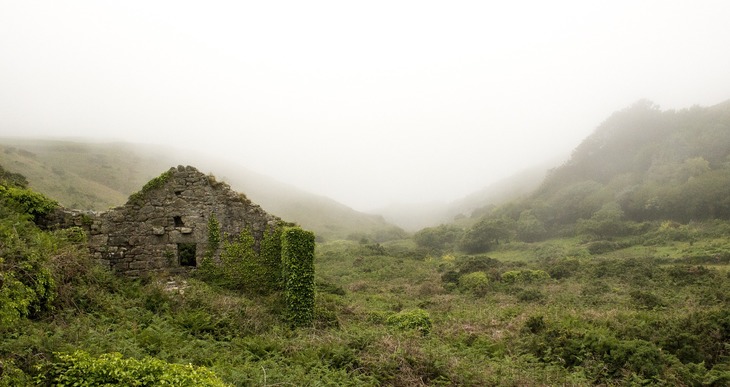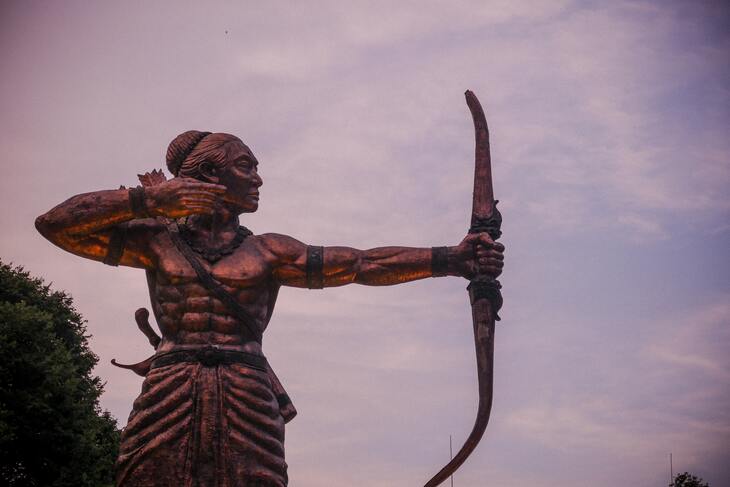The Elven hospitality. Not something Dwarves would have any idea about, given their strenuous relationship with the race. Nevertheless, Lord Elrond, welcomes the Dwarves into his home offering what he can to soothe their weary bones. The Dwarves readily accept the invitation. Lord Elrond will soon find out just how rowdy this company can be.
Poor choice of food
Dori: “Try it. Just a mouthful.”
Ori: “I don’t like green food.”
Dwalin: “Where’s the meat?”
Ori: “Have they got any chips?”
Dori, in his official capacity as the mother goose, tries to get Ori to eat the food in front of him, unsuccessfully. Both Ori and Dwalin aren’t used to eating only plain salad. They were expecting a feast worthy of a Dwarf, which obviously implies meat.
The Elves, however, do not eat meat. They sustain themselves by eating that which the Dwarves choose to ignore. There are not even chips to satisfy Ori’s hunger. It seems as though Lord Elrond invited them to eat only to offer nothing of interest for the Dwarves.
An impromptu invitation
Gandalf: “Kind of you to invite us. Not really dressed for dinner.”
Elrond: “Well, you never are.”
It has happened before that Gandalf came to dine with Lord Elrond dressed as a vagabond rather than a guest at the table of the Lord of the Elves. Fancy attire will not be necessary but he and the company will stand out among all the beautifully clothed Elves.
As opposed to Glóin who merely accepted the invitation without showing any gratitude whatsoever, Gandalf has the manners to correct that mishap. It would have been prudent of Thorin to express his appreciation for Lord Elrond’s offering, but alas, nothing came.
Kili’s fancy
Kili: “I can’t say I fancy Elf maids myself, too thin. They’re all high cheekbones and creamy skin. Not enough facial hair for me. Although that one there is not bad.”
Dwalin: “That’s not an Elf maid.”
Kili: “That’s funny.”
Kili has a wandering eye that curiously enough settles upon a harp playing Elf maid. It doesn’t surprise that he should look upon that which is fairest. However, given the history of the relationship between the two races, it is most intriguing.
There are no Dwarf women to speak of, especially not in a quest of this kind, but as they all fled Erebor, Dwarf women fled as well. Kili, however, has a soft spot for the most elegant and beautiful of creatures.
As Dwalin and the others notice his flirting attempts with the Elf maid, Kili suddenly employs the strategy of self defense. It would be almost a sin in any Dwarf’s eyes to leer at an Elf maid, so Kili takes to argumentation.
What he doesn’t realize is the sex of the Elf he expresses his fancy for. Since all Elves appear almost identical from the back, it is no surprise Kili got confused.
What this gave his comrades is a chance for a laugh at his expense. Kili remains embarrassed and shy to look at any other Elves after this little mishap.
Bilbo’s letter opener
Elrond: “This is Orcrist, the Goblin-cleaver. A famous blade forged by the High Elves of the West, my kin. May it serve you well. And this is Glamdring, the Foehammer. Sword of the King of Gondolin. These swords were made for the Goblin Wars of the First Age.”
Balin: “I wouldn’t bother, laddie. Swords are named for the great deeds they do in war.”
Bilbo: “What are you saying, my sword hasn’t seen battle?”
Balin: “I’m not actually sure it is a sword. More of a letter opener, really.”
As Lord Elrond begins to describe the origins of their swords, Bilbo eyes his sword thinking of presenting it to find out its origin. Balin, however, discourages Bilbo of just that. In comparison to the other swords, Bilbo’s appears to be just a silly little letter opener and not worth the trouble.
What the others don’t know, is that Bilbo’s sword has a special power. One that will come in handy time and time again. The interesting fact is that although Gandalf told Bilbo that his sword glows blue when Orcs or Goblins are near because of its Elven origin, other swords of the same origin don’t have this special power. Another reason why Bilbo is indispensable to the company.
Unpleasant inquiry
Elrond: “How did you come by these?”
Gandalf: “We found them in a Troll-hoard on the Great East Road shortly before we were ambushed by Orcs.”
Elrond: “And what were you doing on the Great East Road?”
Thorin: “Excuse me.”
The place of sword discovery is no secret. However, as soon as Lord Elrond asks about their purpose on the path they trod, everyone at the table is suddenly mute. Thorin excuses himself in order to create a diversion from answering the question. He does not want to reveal the reason behind the gathering of the company. That particular information could be used against them as Lord Elrond would probably prevent them from advancing.
The company
Elrond: “Thirteen Dwarves and a Halfling. Hm. Strange travelling companions, Gandalf.”
Gandalf: “These are the descendents of the house of Durin. They’re noble, decent folk. And they’re surprisingly cultured. They’ve got a deep love of the arts.”
As Gandalf and Lord Elrond look out over the Dwarves’ table from their own, what they witness is the same behavior once already seen in Bag End. Gandalf gives his best to paint them as cultured and well-behaved as he can, but an image is worth a thousand words. What Lord Elrond experiences is complete and utter disrespect of his hospitality and pure good will, not to mention the mess the Dwarves have just started creating.
Lord Elrond wanted to know the reason behind Gandalf choosing such traveling companions for himself. What he got was argumentation and defense of his choice of the company rather than a reason why. Lord Elrond already knows what Dwarves are like and what they are about which is why it surprises him that Gandalf would seek out their company.
A merry song
Nori: “Change the tune, why don’t you? I feel like I’m at a funeral.”
Óin: “Did somebody die?”
Bofur: “All right lads. There’s only one thing for it.”
There’s an Inn, there’s an inn There’s a merry old inn beneath an old grey hill And there they brew a beer so brown The Man in the Moon himself came down one night to drink his fill Oh the ostler has a tipsy cat that played a five-stringed fiddle And up and down he saws his bow now squeaking high Now purring low Now sewing in the middle So the cat on the fiddle played hey-diddle-diddle A drink that’ll wake the dead He squeaked and he sawed and quickened his tune and the landlord Shook the Man in the Moon “It’s after three” he said Text by J.R.R. Tolkien
As opposed to the last song they sang in Bag End, this one is cheerier. They needed the atmosphere to change since they felt as if they were at a funeral. Bofur was the one to initiate the change in mood. They didn’t need harps or any kind of instruments. What they unintentionally did need was a small stage where Bofur can stand and lead the group into singing and food throwing. What they found was a plinth. On this plinth some 60 years after Bilbo’s journey, Frodo will place the One Ring while the Council deliberates what to do about it.
The Dwarves haven’t eaten as close to the amount of food they consumed in Bilbo’s Hobbit hole. In Rivendell, they took to throwing the food either around the table or at each other, often missing one another but hitting the Elven sculptures that surround this sacred place. So much for respect.
Read on in my next post.
Photo by tabitha turner on Unsplash





